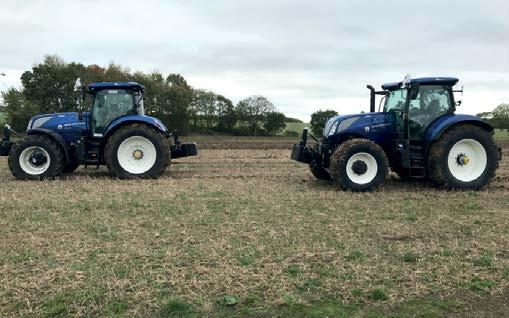UK CARBON CODE OF CONDUCT
Written by Doug Wanstall from Re-generation Earth We are in a climate emergency, it is down to everyone to make a difference and with that in mind a group of land managers, tech and finance experts have come together to ensure that farmers and land managers benefit from the burgeoning carbon market whilst ensuring a robust system of project approval, measure, reporting and verification (MRV) protocols is created. The idea was borne in 2015 when one of the founders of the system, Doug Wanstall completed a Nuffield study looking at building financial resilience in farm businesses. It happened to coincide with the Paris Climate talks at which there was a lot of chatter about a project called ‘4 per mille’ A group of French scientists had calculated that if all the worlds’ soils increased their organic matter by 0.4% per year they could sequester all anthropological CO2. A massive undertaking but it was the lightbulb moment when Doug realised that land management and more importantly change in land management would play a significant role in the reversal of climate change and biodiversity collapse. After an exhaustive 5 further years, gathering information, reading reports
66 DIRECT DRILLER MAGAZINE
and putting together a dynamic group the UK Carbon Code of Conduct and its associated block chain enabled carbon tracking, registry and market place is ready to be launched in Q1 2022.
It was important to the group to ensure that the system was robust and capable of being scrutinised by investors, press and those that may wish to accuse carbon credits of being no more than a way that big companies can ‘greenwash’ their operations. The code and associated immutable information system have been developed to ensure that the carbon credits issued from UKCCC approved projects are fully fungible, investment grade offsets, capable of assuring any customer of their validity. UKCCC approved projects have to uphold the 4 pillars of the code, Assured Permanence, Assured Additionality, Avoidance of Leakage and the
Avoidance of negative outcomes. It is of vital importance when developing projects that issue carbon credits that the projects go through a thorough process of approval, otherwise a land manager may run the risk of having to pay back money paid for credits that turn out to be less than robust. Sequestered carbon needs to be additional and occurred due to the change in practice that is being rewarded. Projects are long term, usually 25 years and reward a trend in actual, measured sequestration into soils, timber, biomass and biodiversity habitats. Tenants can partake in the process as long as they have a minimum 5-year term. They have to actively engage with their landlord who should give approval to enter a long term agreement. If a tenancy ends then soil tests are taken and the outgoing tenant will be issued the credits accrued to date. The same soil tests then become the baseline for the incoming tenant and the whole project is assigned. So far landlords seem to have been receptive to this approach. ISSUE 16 | JANUARY 2022























